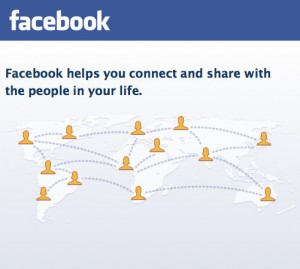I May Be Dead But You Can Find Me on Facebook

Find me on Facebook - dead or alive
“Today you are You, that is truer than true. There is no one alive who is Youer than You.”
― Dr. Seuss, Happy Birthday to You!
When Theodor Seuss Geisel wrote this saying in the children’s book, Happy Birthday to You! in 1959, he couldn’t have imagined that 53 years later, thousands of people using the social media tool Twitter would “tweet” this “Seussism” — along with many others— on the anniversary of his birthday.
Many people paid the prolific tri-syllabic master of prose personal tributes in 140-character tweets:
“You’re the 1st person who taught me about green eggs & ham & Sam I am. . .”
“You are an inspiration like no other; you proved imagination is the way forward.”
The weird thing about these birthday wishes is that Dr. Seuss died 21 years ago from throat cancer at the age of 87.
So what are we to make of posthumous birthday posts?
The emerging trend to communicate online to deceased people as if they are still living is something fairly new, and personally, it strikes me as a bit unsettling. It’s one thing to remember a loved one, it becomes quite another to speak to them as if they were still alive — social media as spiritual medium, you might say.
This trend brings a whole new dimension to Facebook’s new profile, Timeline, which highlights people’s lives from their birth to – well – their life beyond death, I guess.
Facebook actually addressed this issue in late 2009 by giving loved ones the option to create a “memorial state” for profiles of deceased users, in which features such as status updates and group affiliations are removed, but the page is kept alive. Dead user’s confirmed friends can continue to view the profile and post comments on it. (Read more tips on how to manage your online life when you’re dead in this Time Magazine article.)
My first experience with this perpetual social phenomenom happened a few years ago, when an acquaintance died suddenly at a young age. My husband and I found out about his death through a Facebook post on his page. Shocked at his untimely death, many people, including us, posted condolences on his wall.
Ten months later, I got a birthday notification from Facebook, suggesting I wish him “Happy Birthday.” At the time, I assumed this was a painful oversight by his wife, and that she had forgotten to take his page down. A bit morbidly curious, I clicked on his site, which was still alive and well. Many personal birthday wishes were posted. Today, two years after his death, his wall is updated by friends sharing photos and speaking to him as if he were alive. And he “likes” posts back— through his wife, I assume.
Many people find comfort in keeping their loved one’s social media presence alive long after they have died. After all, these sites contain giga-memories of comments, photos, friends and activity that would be hard to part with. I get this.
I’m just not sure I’d post a personal message to a loved one long gone, regardless of my spiritual beliefs as to whether they are checking their status in the eternal online world.
What do you think? Does directly addressing Dr. Seuss and other deceased people seem perfectly normal to you? Or do you think there’s a time to stop posting to a post-mortem mortal? I’d love to hear your comments, at least while I’m alive.
 My professional experience includes leading the creative efforts of three companies I have co-owned. I'm a seasoned copywriter/creative director, award-winning journalist, avid runner, and mom of four. Got a story idea you'd like to share? Email me at treske@nowspeed.com. You can also find me on Twitter: @trishreske, LinkedIn and Facebook.
My professional experience includes leading the creative efforts of three companies I have co-owned. I'm a seasoned copywriter/creative director, award-winning journalist, avid runner, and mom of four. Got a story idea you'd like to share? Email me at treske@nowspeed.com. You can also find me on Twitter: @trishreske, LinkedIn and Facebook.